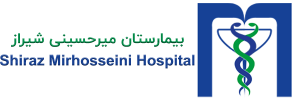Favism
What is Favism?
Favism (commonly referred to as beans) is an inherited blood disease caused by a lack or deficiency of an enzyme. In this disease, when the body is exposed to certain foods or drugs, red blood cells are abnormally broken due to a deficiency of this enzyme and a phenomenon called hemolysis occurs. The disease is more common in boys than girls.
Risk factors that exposure can cause hemolysis and symptoms:
Consume special foods, especially beans
Taking certain medications:
• Antimalarial drugs (dapsone, primaquine, chloroquine, quinine)
• Analgesics (aspirin, statilide)
• Sulfonamides (sulfamethoxazole, cotrimoxazole, sulfasalazine, sulfadiazine)
Quinolones (talidixic acid, ciprofloxacin, norfloxacin, moxifloxacin, aflaxacin)
Other antimicrobials (lithrofurarattoine, methylene blue, chloramphenicol may also be effective)
• Tyridazole
The effect of the following drugs has not been proven for sure, but there is a risk of hemolysis after taking them.
• Vitamin K
• Vitamin C.
• Clipteclamide
Infections
Severe stress
Chemicals (naphthalene, benzene, phenylhydrazine)
Clinical protests:
These people do not normally have any symptoms unless they are exposed to oxidants (oral or inhaled) in which case they develop symptoms of the disease. These symptoms are variable and depend on the severity of the anemia. In most cases, hemolysis occurs. It is mild and resolves on its own, but sometimes the hemolysis is so severe that it can be life-threatening.
General symptoms: feeling tired and weak, paleness, headache, nausea, increased heart rate.
Specific symptoms: Jaundice of the skin and mucous membranes, darkening of the urine
In advanced cases, loss of consciousness and hypotension may also occur.
The most common medical finding found in 80% of these patients is an enlarged spleen.
Complications:
Rarely, heart failure, kidney failure or even death may occur.
treatment:
There is no definitive cure for the disease and the only effective measure is to prevent exposure to risk factors and prevent hemolysis. In severe cases, a blood transfusion may be needed, and in some patients the spleen may need to be removed.
What measures should be taken to prevent it?
Completely eliminate substances that lead to the destruction of red blood cells and the phenomenon of hemolysis.
If you have an infection, see a doctor to get rid of it.
Avoid eating or even smelling beans separately.
If you are a mother who is breastfeeding your Fauvism child, avoid eating beans and aspirin and talk to your doctor about taking any medication.
. Do not use naphthalene to keep insects away from your environment.
If there is a favism child in the family, the test should be done for other children as well
Producer: Azam Ghaedi (Educational Supervisor)
Supervisor: Azam Ghaedi
Confirmation: Dr. Bani Hashemi
Date of preparation: 1391
